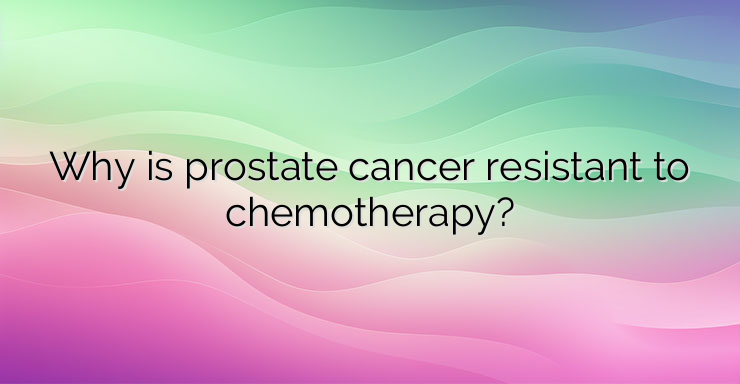The mechanism of resistance to hormone therapy designed to treat prostate cancer has already been established. This discovery by an international research team led by the Netherlands Cancer Institute opens new perspectives for treatment. Counteracting resistance to hormone therapy Prostate cancer is a type of tumor that develops under the influence of hormones, primarily testosterone. Patients with metastatic prostate cancer often receive antihormonal therapy that inhibits the signal sent by testosterone that stimulates tumor growth. Antihormonal therapy can keep prostate cancer under control, but after a while the cancer manages to escape treatment. Tumor cells become resistant. In fact, one of the main challenges today is the fight against resistance to hormone therapy. The exact process behind this resistance to hormone therapy has been unclear until now. Internal clock proteins reduce the effects of therapy The Netherlands Cancer Institute examined the prostate tissue of 56 patients with high-risk prostate cancer who had been given a three-month antihormonal treatment before surgery. After these three months, their tissues were examined at the DNA level. It was found that the genes that kept the tumor cells alive, despite the treatment, were suddenly controlled by a protein that normally regulates biological rhythms. These biological clock proteins take on an entirely new function in tumor cells in the face of hormone therapy: they keep these cancer cells alive despite treatment. Promising new research avenues Many hormones are regulated by the circadian rhythm – the biological clock, and factors such as sleep, for example, can affect their production. It is therefore not surprising that the circadian rhythm influences and that this represents a new field of research. This discovery also creates new possibilities. The goal now is to block this circadian protein to further increase sensitivity to antihormonal therapy in prostate tumor cells. The discovery suggests it will have to start thinking outside the box when it comes to finding new treatments for prostate cancer and testing drugs that affect biological clock proteins, a therapy aimed at increasing sensitivity to hormonal therapy. There are already several therapeutic approaches that affect circadian proteins and these can be combined with antihormonal therapies. References: https://www.doctissimo.fr/sante/maladies/cancer/cancer-de-la-prostate/cancer-de-la-prostate-le-mecanisme-de-resistance-a-lhormonotherapie-decouvert/68b3a9_ar. html https://doctissimo.digidip.net/visit?url=https%3A%2F%2Fdoi.org%2F10.1158%2F2159-8290.CD-21-0576&ppref=https%3A%2F%2Fwww.doctissimo.fr %2F&currurl=https%3A%2F%2Fwww.doctissimo.fr%2Fsante%2Fmaladies%2Fcancer%2Fcancer-de-la-prostate%2Fcancer-de-la-prostate-le-mecanisme-de-resistance-a-lhormonotherapie-decouvert%2F68b3a9_ar.html


Leave a Reply